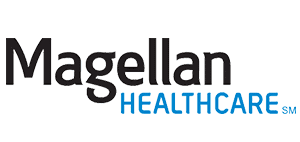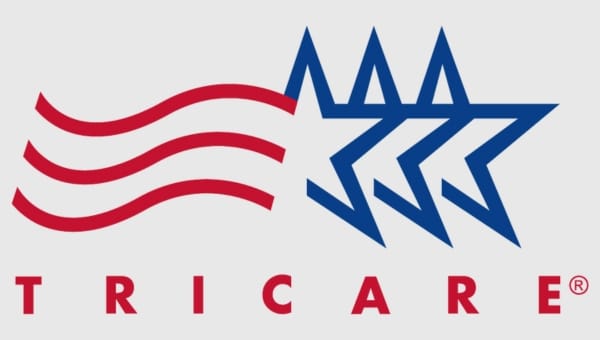Hydrocodone is a powerful opioid prescribed to relieve severe pain. It’s also a widely abused drug that’s contributed to the 247,000 prescription opioid overdose deaths in the U.S. from 1999 to 2019. An addiction to hydrocodone is a serious condition with grave short-term and long-term consequences. It’s imperative you get help right away if you think you or a loved one is struggling with addiction to hydrocodone.
Why Do People Develop Hydrocodone Addiction?
Hydrocodone — more commonly known by its brand names Vicodin, Norco, and Lortab — is an opioid, which is the same class of drugs as heroin. Hydrocodone also contains acetaminophen, the pain reliever found in over-the-counter drugs like Tylenol.
According to the National Institute on Drug Abuse, hydrocodone is one of the most commonly prescribed opioids. Hydrocodone drugs like Vicodin are prescribed for moderate to severe pain for dental procedures, surgical pain, and cancer pain. Its use should be carefully monitored by a physician. Taking hydrocodone without a prescription or other than as a doctor prescribes is considered substance abuse.
Hydrocodone works on the reward center of the brain in a way that causes it to release excessive levels of the “feel-good” neurotransmitters dopamine and serotonin. The excess of these neurotransmitters creates a feeling of euphoria that people may try to achieve again, especially people who have substance abuse issues.
With continuous abuse, the brain begins to depend on hydrocodone to make more dopamine and serotonin. Once you develop a dependence on hydrocodone, physical and psychological withdrawal symptoms occur without the drug. This can cause you to continue abusing hydrocodone to avoid the discomfort of withdrawal.
What Are Signs of Hydrocodone Addiction?
Symptoms of hydrocodone addiction may include behaviors that characterize most addictions, such as:
- Withdrawal from family and friends.
- Jeopardizing work or school status with absences or poor performance.
- Inability to decrease or quit hydrocodone on your own.
- Taking a higher dose of hydrocodone than prescribed.
- Financial or legal trouble due to drug use.
- Preoccupation with using and getting more hydrocodone.
- Doctor shopping for prescriptions.
- Physical and psychological withdrawal symptoms when not using.
- Needing more hydrocodone to get the same effect or even to feel “normal.”
- Taking hydrocodone combined with other drugs or while drinking alcohol.
With any substance, the telltale sign of addiction is continuing to misuse drugs or alcohol despite negative consequences. When your relationships, career, and health are suffering due to your substance abuse, yet you continue to use drugs and alcohol, you have an addiction and should tell your doctor immediately and get professional help.
Effects of Hydrocodone Abuse
Over time, the effects of hydrocodone abuse can put you at risk for a number of health issues. Some of these include:
Cardiovascular Problems
Opioid drugs can increase your chance for several cardiovascular issues like clogged blood vessels, heart failure, and low blood pressure.
Brain Damage
Opioids slow down your breathing and can cause respiratory depression. When you overdose, your brain is deprived of oxygen, and this can lead to coma and permanent brain damage causing motor, memory, and verbal problems. Long-term opioid abuse can also damage your frontal lobe over time. This is the part of your brain responsible for attention, spatial awareness, and memory.
Sensitivity to Pain
Sometimes opioid abuse can cause a condition that makes you more sensitive to pain. This is known as opioid-induced hyperalgesia.
Gastrointestinal Problems
In the short term, you may experience constipation, nausea, and vomiting. In the long-term, opioids can wreak havoc on your digestive system, fueling issues like stomach tissue inflammation, bowel obstructions, and intestinal holes.
Poor Immune System
Opioid abuse can suppress the cells responsible for fighting off illness and infection. This makes you more susceptible to sickness and disease.
Mental Health Disorders
Opioids interfere with the brain chemicals tied to mood and emotional regulation. When you stop hydrocodone abuse, it takes a while for your brain to restore normal functioning and rebalance chemicals. During this time, you may experience depression, anxiety, and other psychological symptoms.
Side Effects
Vicodin, Norco, and Lortab can come with several unwanted side effects, even when used as prescribed. Hydrocodone abuse may also cause bothersome to serious side effects like:
- Seizures
- Convulsions
- Headache
- Blurred vision
- Lightheadedness
- Hallucinations or delusions
- Paranoia
- Stomach pain
- Muscle and back pain
- Urination problems
- Dry mouth
- Agitation
- Irregular heartbeat
- Itching or hives
- Slow breathing
Large amounts of hydrocodone can lead to overdose and death, especially when used in combination with other substances.
Hydrocodone Withdrawal Symptoms
If you have any kind of prescription drug addiction, you’ll generally experience withdrawal symptoms when you stop using the substance. Withdrawal from opioids can be especially intense. Though withdrawal symptoms are usually not life-threatening as long as you’re not abusing other substances, they can be painful.
Hydrocodone withdrawal symptoms may include:
- Sweating
- Muscle cramps
- Nausea and vomiting
- Runny nose
- Diarrhea
- Paranoia
- Agitation
- Seizures
Hydrocodone withdrawal should take place under the care of medical professionals, ideally in a medical detox facility. If you’re going through alcohol withdrawal as well or withdrawal from other substances, detoxing can be dangerous.
How Addictive Is Hydrocodone?
In 2014, the U.S. Drug Enforcement Administration reclassified hydrocodone as a Schedule ll drug, a controlled substance with high potential for abuse. This upward shift from its previous designation as a Schedule lll drug took effect on the heels of the emerging opioid epidemic. Data was making the widespread prescription drug abuse problem increasingly clear.
The intensity of hydrocodone addiction is thought to be in line with heroin addiction. Both members of the opioid family of drugs, hydrocodone and heroin act on the same part of the brain’s reward center and impact the central nervous system. These powerful opioids are described by those who abuse them as producing a feeling of euphoria and comfort like no other drug. The extreme high, combined with the way opioids rapidly deplete the brain’s feel-good neurotransmitters make it extremely difficult for people who abuse the drug to stop on their own without professional help.
Need Help For Hydrocodone Addiction?
Our admissions team is available around the clock to help you or a loved one get the help you need.
Hydrocodone Addiction Treatment
Opioid addiction treatment usually begins with medical detox. This takes place in a medical facility or drug rehab where professionals monitor you around the clock. They’ll make sure you don’t have any medical emergencies and ease discomfort with medications. Following drug detox, a professional drug and alcohol rehab program helps you address the reasons behind your substance abuse and learn healthy coping skills to prevent relapse when you return to everyday life.
At Vogue Recovery Center, we know that addiction recovery is hard work, and we also know that it’s well worth it. We hope you’ll find this for yourself as well. We offer research-based addiction treatment and a wide variety of therapies so you can discover what treatment approaches best work for you. Our treatment teams are made up of behavioral health care providers that are experts in the field. Levels of care include residential treatment and outpatient rehab options. Call us today for a free, confidential consultation. Life can be better.
Does Insurance Cover Rehab For Hydrocodone?
One of the most-asked questions when it comes to treating drug addiction is whether or not insurance will cover the cost of treatment. If you’re wondering how to pay for rehab, the good news is that insurance can cover part or all of the cost of treatment. All insurance providers and policies are different, but a free insurance verification with the team at Vogue Recovery Center can offer more information about what treatment options for substance abuse and mental health issues you have available based on your policy.
If you or a loved one is struggling with an addiction the hallucinogens or psychedelics, don’t hesitate to contact the admissions team at Vogue Recovery Center. We can help you get started with your recovery journey!
Get Help For Hydrocodone Addiction
If you’re facing hydrocodone addiction or grappling with opioid abuse, seeking professional help can be a crucial step on the path to recovery. A well-rounded drug rehabilitation program provides the resources, guidance, and support necessary to address the underlying causes of addiction and create a strong foundation for a healthier, drug-free life.
At Vogue Recovery Center, our skilled professionals provide compassionate guidance through research-based therapies, crafting a treatment plan uniquely tailored to your needs. Here, you’ll develop healthier coping strategies, gain the tools to identify and manage triggers, and build a strong foundation for lasting recovery. Remember, you don’t have to navigate this journey alone. With the right support, healing is possible—mentally, physically, and spiritually—allowing you to reclaim the fulfilling life you deserve.
- https://www.hopkinsmedicine.org/opioids/what-are-opioids.html
- https://www.heart.org/en/news/2019/03/07/concerns-about-heart-health-amid-the-opioid-meth-epidemic
- https://www.nature.com/articles/s41598-018-23717-4
- https://www.frontiersin.org/articles/10.3389/fimmu.2019.02914/full
- https://pubmed.ncbi.nlm.nih.gov/30314567/
- https://www.sciencedaily.com/releases/2020/01/200124155116.html
- https://medlineplus.gov/druginfo/meds/a614045.html
- https://www.ncbi.nlm.nih.gov/books/NBK310652/











